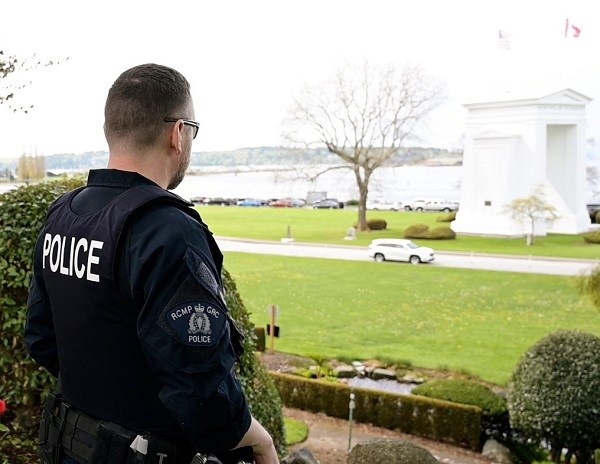A B.C. Supreme Court justice has refused to grant a U.S. request to extradite a West Â鶹´«Ã½Ó³»man facing charges for allegedly running an international drug dealing operation over the “dark web” linked to the opioid overdose deaths of two U.S. Navy servicemen.
Thomas Michael Federuik of West Â鶹´«Ã½Ó³»was arrested almost two years ago, on May 24, 2022, along with British citizen Paul Anthony Nicholls, 44.
The two men are accused in the U.S. of conspiring to import drugs from China and Hungary while using the business names East Van Eco Tours and Bridge City Consulting LLP to distribute drugs across the U.S.
The U.S. indictment alleges fentanyl shipped by the two men led directly to the deaths of two U.S. servicemen from drug overdoses.
According to court documents, a search of Federuik’s home revealed Canada Post receipts with tracking information for packages received at the home of the sailors a few days before their bodies were discovered.
Acting on a request of U.S. authorities, a B.C. Supreme Court justice issued a warrant for the provisional arrest of Federuik on May 24, 2022. He was granted bail on June 15, 2022, subject to a number of conditions.
But in an extradition hearing held in November, Federuik’s lawyer Glen DelBigio, KC, argued that the U.S. had not provided documents supporting the arrest within the 60-day timeframe allowed by the Extradition Act. Acting on advice given in error by Canadian bureaucrats, the information wasn’t provided until two days later.
Although the Act provides for judges to extend the timeframe, in a decision made Feb. 1 and posted publicly this week, B.C. Supreme Court Justice David Crossin ruled that to do so would result in an unacceptable infringement on Federuik’s charter rights.
Crossin ruled that while the two-day delay “appears insignificant, if not trivial” the section of the act allowing judges to extend the time for documents to be provided following a ‘provisional arrest’ was too vague, and therefore inconsistent with the Canadian Charter of Rights and Freedoms.
He ruled if the U.S. still wants to extradite Federuik, authorities will have to start the process all over again.
The case dates back to a joint U.S.-Canadian investigation that began in 2017 with the fentanyl overdose deaths of two U.S. Navy petty officers in Kingsland, Ga.
While investigating their deaths, American authorities discovered packaging material linking the toxic fentanyl to a shipment from a drug trafficker dubbed Canada1 at a West Â鶹´«Ã½Ó³»address.
U.S. and Canadian law enforcement agencies joined forces and the RCMP intercepted several packages being shipped by the Canada1 dealer and determined they contained fentanyl, said Corp. Arash Seyed, media spokesperson for the RCMP’s federal serious and organized crime unit, in 2022.
In March of 2018, RCMP investigators arrested Federuik and Nicholls at a West Â鶹´«Ã½Ó³»address and seized approximately 1.7 kilograms of fentanyl with a street value estimated at about $30 million. Investigators also discovered mail tracking slips that matched the fentanyl packaging material found by U.S. authorities, said Seyed.
Nicholls, whose visa had expired, was immediately deported to the U.K. while the investigation continued.
According to documents filed in the Southern District of Georgia US District Court, Federuik and Nicholls allegedly used aliases including Bitmessage accounts to conceal their identities and sold the drugs using cryptocurrency on internet sites including Dream Market, specifically to avoid detection.
The “dark web” is a layer of the Internet that can only be accessed by anonymizing web browsers, said Seyed, making transactions difficult to trace.
Court documents allege one shipment mailed from Canada on Sept. 27, 2017 and delivered in Georgia on Oct. 11, 2017 resulted in the death of one Navy serviceman.
Another shipment mailed Oct. 6, 2017 and delivered Oct. 13, 2017 allegedly resulted in the second death.
If convicted of the U.S. charges, the men face possible penalties of a minimum of 10 years in prison, up to life in prison, along with fines of up to $10 million.

